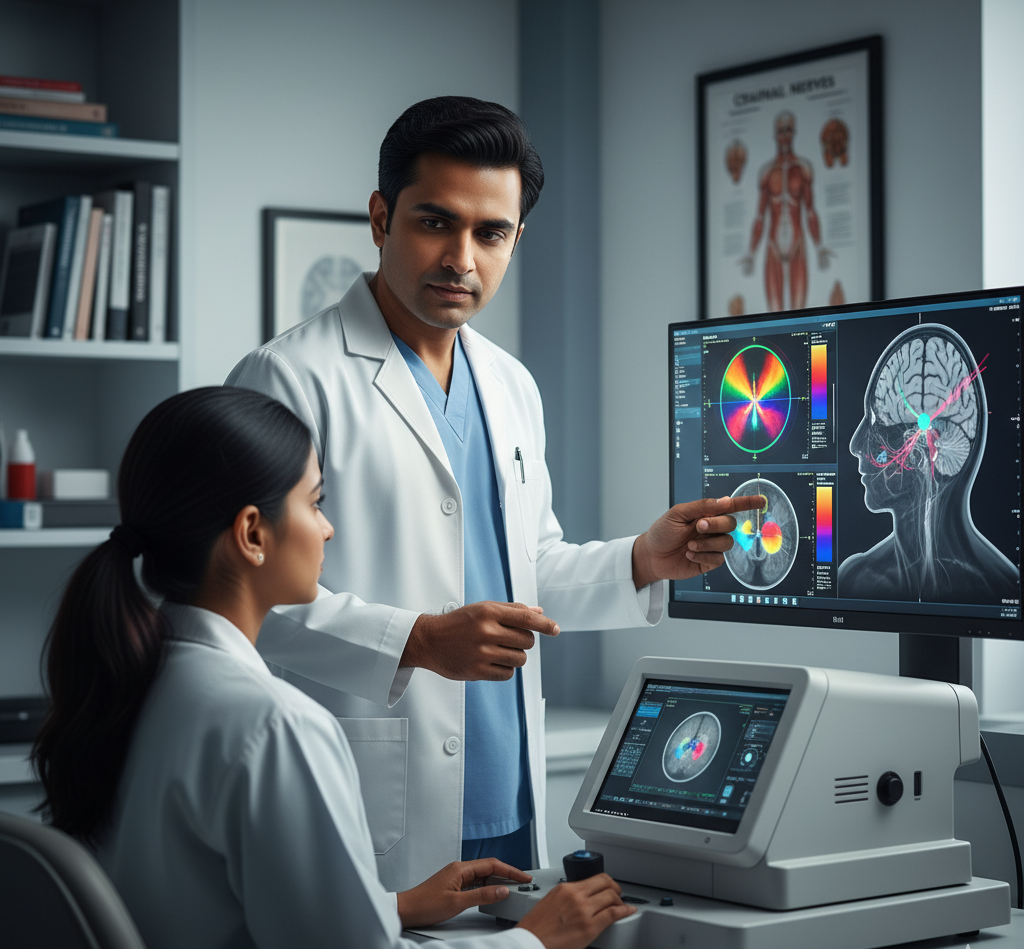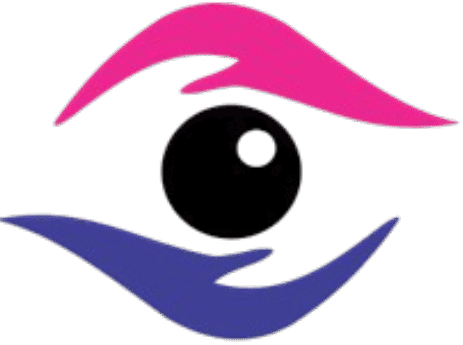Expert Diagnosis and Management of Vision-Related Neurological Conditions by Dr. Avijit Vishnoi
Neuro-ophthalmology is a specialized field that bridges neurology and ophthalmology, focusing on vision problems related to the nervous system. These complex conditions can affect the optic nerves, brain pathways controlling vision and eye movements, and can have profound effects on sight and quality of life.
At Anushree Eye Hospital, Dr. Avijit Vishnoi, a highly skilled Vitreo Retina Surgeon with a comprehensive understanding of ocular and neurological pathways, provides expert evaluation and management for a wide range of neuro-ophthalmic disorders.
Dr. Avijit Vishnoi: Addressing Complex Neuro-Ophthalmic Cases
Dr. Avijit Vishnoi (M.S. Ophthal, F.R.F., F.N.N.) brings his diagnostic acumen and detailed knowledge of the eye and its connection to the brain to the challenging field of neuro-ophthalmology. His ability to interpret complex symptoms and utilize advanced diagnostic tools makes him a trusted specialist for conditions where vision loss or double vision are linked to neurological issues. Dr. Vishnoi collaborates with neurologists and other specialists to provide holistic care for these intricate conditions.

Understanding Neuro Ophthalmology
Neuro-ophthalmology focuses on disorders that affect the nervous system as it relates to vision, eye movement, and pupillary function. Symptoms can range from unexplained vision loss to double vision, headaches, and involuntary eye movements. Because these conditions often involve the optic nerve and brain, accurate diagnosis is critical.
Common Neuro-Ophthalmic Conditions We Manage
Dr. Vishnoi provides comprehensive evaluation and management for various neuro-ophthalmic conditions, including:
1. Optic Nerve Disorders
- Optic Neuritis: Inflammation of the optic nerve, often associated with multiple sclerosis (MS) or other autoimmune conditions, causing sudden vision loss and pain.
- Optic Neuropathy: Damage to the optic nerve due to various causes such as ischemia (lack of blood flow), compression, or nutritional deficiencies, leading to vision loss.
- Papilledema: Swelling of the optic disc (where the optic nerve enters the eye) due to increased intracranial pressure, often a sign of a serious underlying neurological issue.
2. Double Vision (Diplopia)
- Causes: Can result from cranial nerve palsies affecting the muscles that control eye movement (e.g., Third, Fourth, or Sixth nerve palsy), thyroid eye disease, or myasthenia gravis.
- Management: Identifying the underlying cause and guiding appropriate treatment, which may include prisms, medication, or surgery in some cases.
3. Visual Field Defects
- Causes: Damage to the visual pathways in the brain (e.g., from stroke, tumor, or trauma) can lead to specific patterns of vision loss in parts of the visual field.
- Diagnosis: Precise mapping of visual field loss to pinpoint the location of neurological damage.
4. Headaches Affecting Vision
- Migraine with Aura: Visual disturbances (e.g., flashing lights, zigzag lines) that precede or accompany a migraine headache.
- Giant Cell Arteritis (GCA): A serious inflammatory condition that can cause sudden, irreversible vision loss if not diagnosed and treated promptly.
5. Pupillary Abnormalities
- Anisocoria: Unequal pupil sizes, which can sometimes indicate underlying neurological problems.
- Afferent Pupillary Defect (APD): A sign of damage to the optic nerve.
6. Nystagmus
- What it is: Involuntary, rhythmic eye movements that can reduce vision and affect balance.
- Diagnosis: Identifying the type and cause of nystagmus to guide management.
Diagnostic Approach in Neuro Ophthalmology
Diagnosing neuro-ophthalmic conditions often requires a combination of advanced tests:
- Detailed Ocular Examination: Including visual acuity, color vision, pupillary assessment, and fundus examination.
- Visual Field Testing: To map areas of vision loss.
- Optical Coherence Tomography (OCT): To assess the thickness of the optic nerve and retinal nerve fiber layer.
- Imaging Studies: Often collaborates with neurologists to recommend and interpret MRI (Magnetic Resonance Imaging) or CT (Computed Tomography) scans of the brain and orbits to identify neurological causes.
- Blood Tests: To check for inflammatory markers, autoimmune conditions, or nutritional deficiencies.
Why Choose Anushree Eye Hospital for Neuro Ophthalmology?
- Integrated Expertise: Care delivered by Dr. Avijit Vishnoi, combining ophthalmological and neurological understanding.
- Advanced Diagnostic Tools: Access to cutting-edge equipment for precise diagnosis.
- Collaborative Care: Close working relationships with leading neurologists and other specialists for comprehensive management.
- Patient-Focused Approach: Detailed consultations to explain complex conditions and create individualized treatment plans.
- Focus on Underlying Causes: Commitment to identifying and addressing the root neurological issues affecting vision.
If you are experiencing unexplained vision changes, double vision, or visual disturbances potentially linked to a neurological condition, early and accurate diagnosis is paramount.
Schedule a comprehensive neuro-ophthalmology evaluation with Dr. Avijit Vishnoi.

